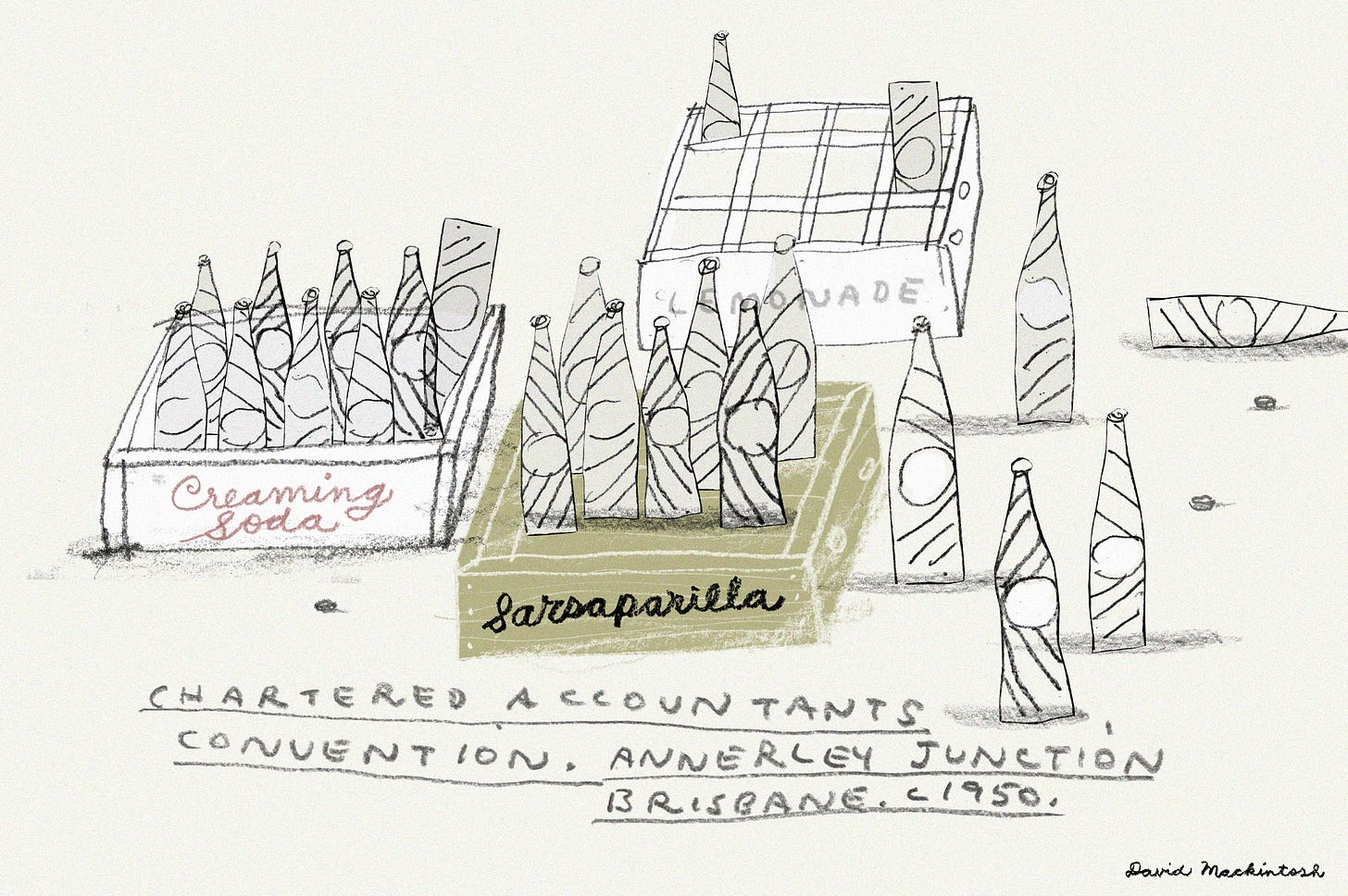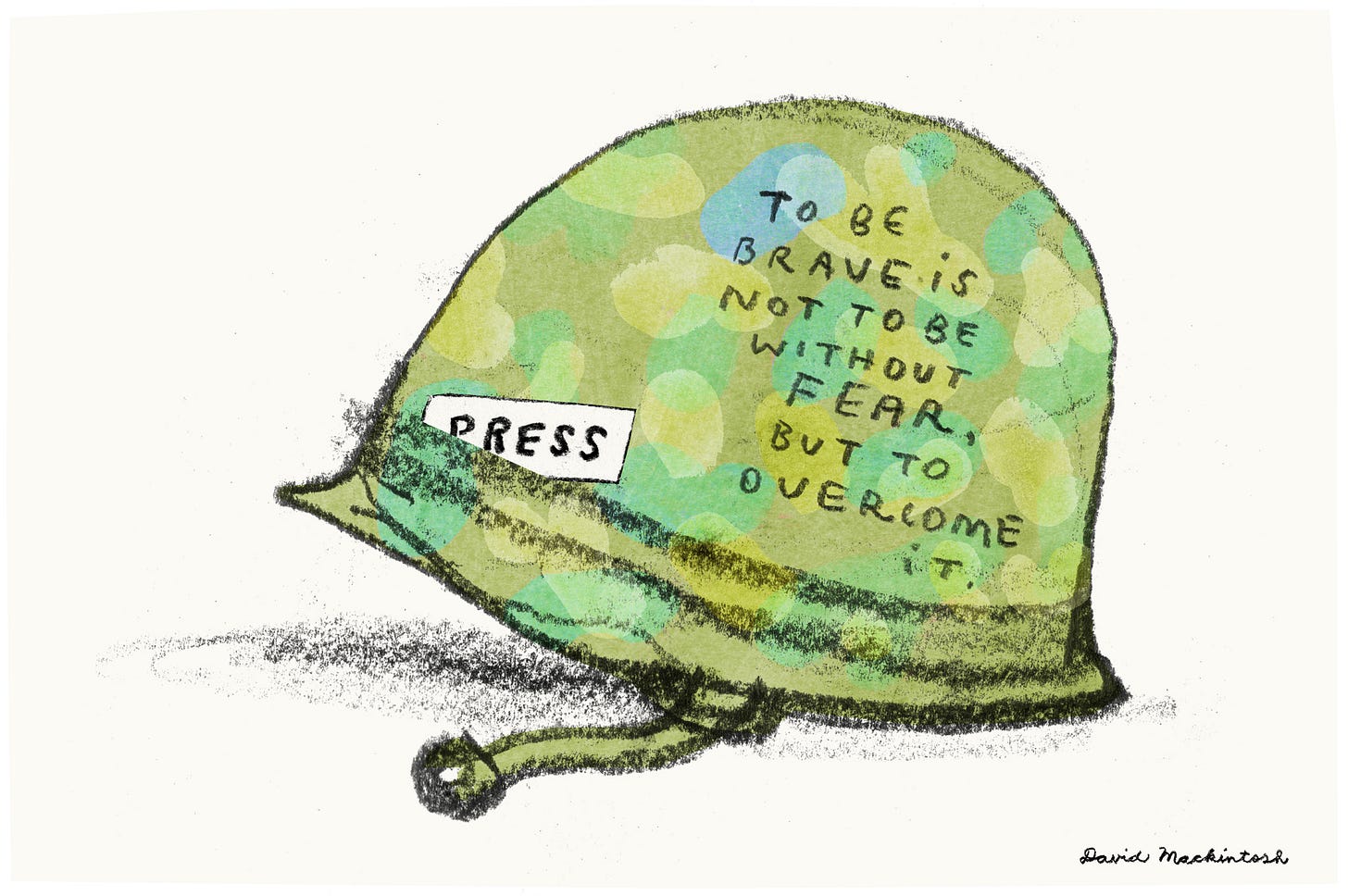WHEN I turned 17 in 1958 my father, Fred, who owned a cake and pie shop at Annerley Junction in Brisbane, sat me down on a bag of flour and asked what I was going to be when I grew up?
People were always asking me that.
Once, just for something to say, I told a customer in the shop I wanted to be an Accountant.
He swung around and pointed dramatically at a huge stack of soft drink bottles waiting to be collected (in the days when all bottles were returned to the local manufacturer to be refilled).
“See those hundreds of soft drink bottles?” he shouted.
I certainly could … because my job in our shop was sorting the bottles into their correct wooden crates.
“Well,” this gentleman roared, “there are more accountants than there are soft drink bottles!”
So when my Uncle Bill, who was a Police sergeant, asked … I told him I might become a Detective.
“A Detective!” he fumed. “That a dirty, dangerous job mixing with all the wrong sort of people in all the wrong places.”
So when Dad asked I was wary.
I told him I didn’t yet know what I wanted to be … even though I was studying for the “Senior University Examinations” in Grade 12.
The only thing I knew for sure and certain was that I couldn’t spend the rest of my life sorting soft drink bottles.
It was a dirty, dangerous job mixing with all the wrong sort of spiders and cockroaches in the dirt under the shop.
“Look to your strengths, Hughie” Fred said, sitting down whilst taking off the ankle-length white apron he wore every day of the week — something he called his “Badge of Servitude”.
So clearly he didn’t want me to become a pastrycook.
Fred picked up the pith helmet that he wore whenever he was going to the pub … “off to see the wizard” he called it.
“What’s your strong suit?” he said gently. “What are you good at?”
I replied without wanting to skite:
“Well Dad …I can make meat pies … er, I can play the trumpet … um, I can sort soft drink bottles … hmm, I can quote lots of poetry … and, ahh, I can tap dance!”
Fred stood up, shook all the flour off his apron, put on his pith helmet, and triumphantly looked down at his second son and said:
“Then I’d say you’re very well equipped for Australia’s future!”
Of course, neither Fred nor I knew back then what was coming: hamburgers, the electric guitar, tin cans, television, and rock-and-roll.
Or that they would be overtaken by Uber Eats, Spotify, baristas, A.I., and Adele.
Now that I’m 82 I can see that it’s no use trying to predict which way the world will go in future: the only thing you can expect is the unexpected.
Even our language will change so much that it will be difficult to recognise.
When I was 17, a phrase like “mooning over a girl” was something romantic.
A “stimulus package” was a Meter Maid in a gold bikini at Surfers Paradise.
An “outing” was something to really look forward to … where the whole family was involved.
And a “Mixed Marriage” was one between a Protestant and a Catholic … not a man and a woman.
Who would ever have imagined back then that alcohol would one day be allowed at dances? Or that 13-year-old schoolboys would not be permitted to carry their school-issued .303 rifles on the tram to school?
Now they aren’t even allowed to have a .303 in their bedroom.
Or that you could enrol at university without passing a public English examination!
In Grade 11 and 12 at St Joseph’s College, Gregory Terrace, we had a famous English teacher, Brother “Doc” Campbell, who grew up in Warwick.
Doc had two degrees in Science from Sydney universities but decided to teach English after one of his students chased him down the road after school and said:
“I just wanted to see how you was?’
Brother Campbell said at that moment he realised that every time you open your mouth … for the rest of your life your education will be revealed.
So he told us:
“If you don’t pass English you won’t get to look through the paling fence at the University!” (There was only one University in Queensland then … when Universities were, strangely, restricted to scholars.)
So I was surprised when I finally arrived to study English at the University of Queensland and found there was no paling fence!
But, despite his metaphor, I forgave Doc because I have always valued his unforgettable life lessons.
I had begun high school in the C class, which in 1955 I could see was set aside for the dumb, the foreign, and the unruly.
In my last year of school, when I was down the bottom of the A class (for the best scholars), Doc pulled me aside and said: “Always remember son, there is no disgrace in being even the least… when all are great”.
And when I was being shot at, bombed, and lied to in Vietnam ten years later, I consoled myself with Doc’s oft-quoted dictum to his students: “To be brave is not to be without fear, but to overcome it.”
The very best thing Doc did was to teach us that: “Poetry is the source and finer expression of all knowledge”. And so he insisted we learn four lines of poetry off by heart every night.
When he wanted to warn us to avoid a decadent lifestyle after we left school, he did so in verse:
Potatoes when I’m hungry;
Whiskey when I’m dry;
Peggy when I’m lonely;
Heaven when I die.
When I turned 17, no one talked openly about sex like they do today … they talked instead about “the need to be pure”.
So, in an era of having to Confess any impure thoughts (or actions), I looked to Doc’s poetry classes to help me when it came to relationships with girls.
I learnt off by heart what Sir Galahad said:
My good sword carves the casques of men
My lance it thrusteth sure;
My strength is as the strength of ten …
Because my heart is pure.
And Doc’s warning from the Bible: Look not upon a maiden lest her beauty be a stumbling block to thee.
That memorable year of 1958 I had to take part in my first ever debate: “Is it a Mortal Sin to kiss a girl?”
Now non-Catholics might not know the important distinction here: a Mortal Sin meant “Hell forevermore” if you did not Confess; whereas a Venial Sin only meant a few months burning in Purgatory.
So it was vital to get it right.
My classmate who had sat next to me since primary school, Jim Egoroff, and I were confused by a topic we knew nothing about.
Jim suggested we consult an expert.
We wrote a letter to a Jesuit Theologian… since they know everything.
To our surprise the Theologian did not give a definitive answer saying only: – “I suppose it possibly could depend on how many times you kiss the girl … on the one occasion.”
Jim, whose strength was maths, wrote immediately back saying: “We need a number!”
The Jesuit Theologian replied after several weeks of contemplation: “Well boys, I suppose 30 times should do the trick.”
Years later I learned that this priest had known much more than he should have. He was, indeed, spot on.
Later that year of 1958 I ran into a red-headed stumbling block from St Margaret’s Anglican Girls School at an Annerley party.
Poetry was the one thing that could capture how I felt as I looked across that narrow built-in verandah and saw her standing there in her pale blue sack dress:
Fashioned so purely, fragilely, surely.
From what paradisal, imagineless metal
Too costly for cost?
Who hammered you, wrought you,
From Argentine vapor?
But I was careful never to tell her what I’d been thinking that first night we met.
Perhaps I should have … because one afternoon she rang to say she didn’t want to see me anymore.
As I had yet to grow up, the only solace I could find for my desperate plight was from a poem by Robert Browning:
Had I done that, had I done this
So might I gain, so might I miss.
Might she have loved me? Just as well;
She might have hated, who can tell?
Where had I been now if the worse befell?
David Mackintosh illustrations © profuselyillustrated.com






Lots of funnies in this one. Thanks!
Hugh, another great yarn. Am reading this in Chiba, Japan - a world away from accountants in Annerley or St Joeys, Gregory Terrace! The red head stumbling block puts me in mind of the song Pamela Brown. I'm humming it now.